2013 Colloquia Books
I hold a book discussion group in my home every month and have done so for the past ten years. It is one of my favorite things. I learn so, so much from the men and women who join me to discuss human nature, philosophy, principles of freedom, and classic works of literature. I have people ask me for a book list all the time and sometimes I remember to send one to them and sometimes I don’t, so I decided to post it here so anyone who is interested can find our books easily.
January
Mama’s Bank Account by Kathryn Forbes is the story of a Norwegian family and their assimilation into American life in San Francisco. Mama is strong, nurturing, hilarious, and stubborn. We are reading this one aloud as a family and everyone is loving it.
February
Daring Greatly: How The Courage To Be Vulnerable Transforms The Way We Live, Love, Parent, and Lead is a fabulous book by Brene Brown. I love her TED talk and can’t wait to dig into this book and learn more about being an authentic human being.
March
Two Old Women by Velma Wallis is a quick read. I just finished it today during my new hour long study time…started it a few days ago…it probably took me two or two and a half hours to read. It is a simple story, but it has me thinking about courage, forgiveness, peace, whining, community, determination, and hard work.
April
The Jew In The Lotus: A Poet’s Rediscovery of Jewish Identity in Buddhist India sounds fascinating! An Amazon reviewer says:
The author writes well, so well in fact that he took me deeper into concepts than I have ever been before. There are a lot of facts in this book and a lot of theology. I have no background in philosophy, theology, mysticism, meditation or any spiritual practices. And yet I was able to follow most of it.
The Jews and Tibetan Buddhists have some things in common. Their monks study sacred texts and practice debate. There are some ancient words that are common to both religions. And on a deep spiritual level, they both practice meditation and visualization.
The differences are vast though. The Jewish tradition is rooted in the family. The Tibetan in a monastic tradition. The Jews believe there is one lifetime. The Tibetans believe in reincarnation.
When the question of the holocaust came up, the Tibetan answer was that it was karma for something bad they did in their past lives when they might or might not have necessarily been Jews. The Jews were shocked by this. They felt it was blaming the victim.
The big issue in the book was about spirituality, however. Modern Judaism is based on customs and traditions and ethnic identity. It is not based on the essence of spirituality which is reached in prayer, meditation, chanting and communication with something much deeper than self, and — ultimately — results in enlightenment.
I read this book slowly, each paragraph bringing up ideas I had never even knew existed before. It was an experience in itself to share the journey with the author who did painstaking research to pull this little gem of a book together.
Recommended for someone who wants to do some deep thinking about spirituality and its place in the modern world.
May
Frankenstein by Mary Shelley is our read for my birthday month. This has been on my book list ever since my friend Kate recommended it several years ago. She said it made her ponder the issue of creation and stewardship and who is responsible for the creations of one’s hands. I can’t wait to read this and have a powerful discussion on it.
June
June 6th marks the 68th anniversary of D-Day and to commemorate it, we are reading The Longest Day: The Classic Epic of D-Day by Cornelius Ryan. I am a huge World War II junkie, but I have never read this book and it is high time I did. I want to understand every aspect of D-Day and to come face to face with the courage and sacrifice of all involved.
July
Granville Toogood’s classic book on leadership has been republished with additional information to help anyone become more effective in sharing their ideas with others. We are reading The New Articulate Executive and will practice our public speaking skills as part of our discussion.
August
The Alchemist by Paulo Coelho is a short fable that has been on my to-do list for awhile. Here is what one Amazon reviewer says:
I checked this book out from the library, but I’m going to buy a copy and re-read it at regular intervals.
I read it over the course of one day, thought “nice fable” & began reading another book as soon as I finished this one. But I found that the lessons contained in this simple story of a shepherd boy seeking treasure, won’t be dismissed so easily. They must have taken up residence in my subconscious and kicked up some dust, because my mind keeps returning to the lessons of the story to find new and more subtle insights having formed.
These are lessons that we all know in our hearts, but that we forget as we get wrapped up in the hustle and bustle of our material lives. Lessons about listening to our hearts and following our dreams. Lessons about living in the moment, the transient nature of possessions and the illusion that we can even “possess” something to begin with. Lessons about freeing ourselves from fear and about understanding our lives as part of the energy of the Universe and understanding that everything will work out the way it was intended to. Lessons about trusting in signs, knowing that our lives have a grand purpose and that the forces of the Universe will conspire to help us fulfill that purpose. And the lesson that all of the fortunes and misfortunes we encounter in life are part of our spiritual education, and that it’s not the earthly “treasure” we seek that’s important but the lessons learned while in pursuit of it.
If you like to ponder the meaning of life, then let your mind and spirit mull over the lessons in this book. It’s a quick and enjoyable read that will provide some new insights, or remind you of some old one’s that you’ve forgotten.
September
We are reading another C.S. Lewis (because I love Jack to pieces and learn so much from him each time I read one of his works) book this year…actually three of them – the entire Space Trilogy! I have wanted to read these for years and can’t wait to spend my summer reading Out Of The Silent Planet, Perelandra, and That Hideous Strength. Has anyone read these to their family? I am wondering how they would be as a read aloud.
October
Nothing To Envy: Ordinary Lives in North Korea has been recommended by Becky, a long-time colloquia member, for the past couple of years. I am interested in learning about the struggle for survival, the courage to live, and the heartbreak that is ever-present in the totalitarian regime of North Korea.
November
Do you feel overwhelmed or inundated by the plethora of choices we have available to us today? I know I do. If there are fifty different toothpastes on the shelves, one of them must be the best in terms of effectiveness and what is the best value in terms of price vs. working well. Barry Schwartz delves into the psychological effects of having too many choices in today’s modern world in The Paradox of Choice: Why More Is Less.
December
Emma. Yes, we are delving in to Jane Austen’s world of relationships once again. There are a hundred (thousand?) different versions out there, but I highly recommend this one because not only is it breathtaking, it is chock-full of annotations that explain the culture and time period for those of us who aren’t experts on the Regency Era and will greatly deepen our understanding of the characters and their experiences.
I am excited about our reads for this year and especially for our discussions. If you would like to read along with us, but cannot join us for the discussions, feel free to post your thoughts here or email me and we can talk back and forth about your insights!

 I'm Tracy, a mama with big dreams, crazy ideas, loads of laughter, an insatiable desire to learn, and enormous piles of laundry.
I'm Tracy, a mama with big dreams, crazy ideas, loads of laughter, an insatiable desire to learn, and enormous piles of laundry.





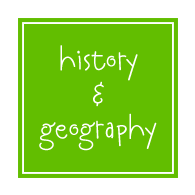

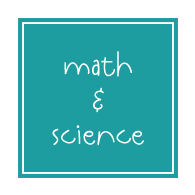

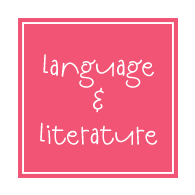
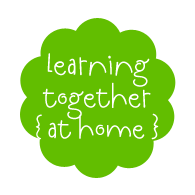
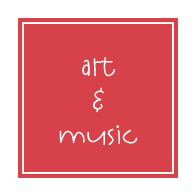









I love The Alchemist. It is one of my all time top 5 most favorite books. Just thought I’d mention it.
That is good to know! If you love it, I can trust that it will be a great read!